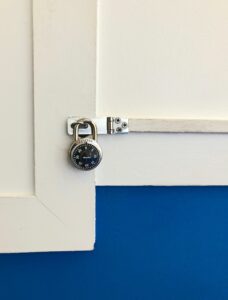
As social and relational beings, we thrive when our relationships are deep, meaningful, and connected. You can have money, property, fame, and beauty, but if you have poor relationships with others, that’s a void that can’t be filled and it will be deeply felt. While God has designed us to be relational, part of the tragedy of the human condition is that we live in a world that’s broken, and that brokenness extends to our relationships, preventing secure attachment.
Secure attachment: What is it?
We learn how best to relate to others when we are young. That’s when we form our emotional and mental maps of the world. When children’s needs are met consistently and their expressions of emotion are welcomed and met with understanding, comfort, and support, all this helps them feel secure. They can be vulnerable and safe, which allows them to express themselves and know that they are loved. This is what is called secure attachment.
When people are securely attached, they have healthy self-understanding, the ability to express their emotions and needs, and a willingness to trust. Because their needs were met consistently and meaningfully, they can relate to others in a healthy way that’s free from anxiety or fear. Ideally, everyone should have a home environment in which they are loved, given room for self-expression, and their needs met.
We long to experience the joy of being loved and of loving others, and our hearts ache when this basic desire is not met. The people that are closest to us – our families, friends, and such – don’t always show up in the best way possible.
This can occur when issues of alcohol abuse and domestic violence are present or you experience neglect and abandonment, whether physically or emotionally. When a person’s needs aren’t met consistently, or if he or she has been abandoned in some way, that leads to other forms of attachment such as anxious and avoidant attachment.
 Different forms of attachment shape how people act and react within relationships. If your parent or caregiver was absent, emotionally unavailable, and your needs sporadically met, that can affect how you act toward your significant other.
Different forms of attachment shape how people act and react within relationships. If your parent or caregiver was absent, emotionally unavailable, and your needs sporadically met, that can affect how you act toward your significant other.
Do you trust that your needs will be met in the relationship? Can you be vulnerable and commit fully to your partner? Does your partner love you as he or she says? A person who doesn’t have a secure attachment style will wrestle with these questions and act in ways that may damage the relationship.
Benefits of secure attachment in relationships
Some of the downsides of insecure attachment have been highlighted. Not only does it result in self-doubt, feelings of shame, trust issues, chronic anxiety and insecurity, and the need for constant reassurance, but these can hamper flourishing in a committed relationship. On the other side of the equation, secure attachment has several benefits, including the following:
Open and honest relationships. A romantic relationship requires vulnerability and trust. A person with secure attachment can own his or her feelings and needs and can communicate them. He or she is emotionally available and can do this without fear of rejection or that a partner will leave him or her. That allows a couple to have emotional intimacy and a lasting connection.
Mutual support and protection. A secure attachment helps a person be able to support and respect their partner, which makes for a relationship that feels safe and protected.
A secure relationship. Secure attachment means that a person can entrust himself or herself to their partner, and he or she is not insecure about the relationship or in constant need of being reassured of a partner’s affection.
A committed, healthy relationship. A secure attachment allows you to commit to your significant other without undue fear or hesitation. When you know someone is committed to you, that creates space for a healthy relationship. Other attachments such as avoidant attachment make a person aloof and reluctant to commit, which can undermine the relationship’s health and longevity.
 Forgiveness. All people make mistakes, and having a secure attachment allows a person to be better placed to forgive a partner as well as himself or herself for any mistakes or harmful behavior.
Forgiveness. All people make mistakes, and having a secure attachment allows a person to be better placed to forgive a partner as well as himself or herself for any mistakes or harmful behavior.
Effective self-regulation. A secure attachment allows a person to understand, regulate, and articulate his or her own emotions better.
Good communication and problem-solving. If two people with a secure attachment style are in a relationship, they can communicate openly and honestly. This allows them to work together effectively to resolve problems instead of escalating conflict.
Flexibility and adaptability. A person with a secure attachment style is more willing to adapt and see things from his or her partner’s point of view. He or she can accept feedback without feeling either criticized or controlled by their partner.
Conclusion
A person’s attachment style affects how they relate to other people in relationships. You may not have a secure attachment style, but that doesn’t mean that you’re unable to overcome challenges. Speak openly about your concerns with a loved one or talk with a professional.
A professional such as a psychologist or counselor can help you identify your attachment style, work through and unlearn unhealthy patterns of thought and behavior, as well as build stronger bonds in your relationships.
“Scrapbooking”, Courtesy of Marissa Grootes, Unsplash.com, CC0 License; “Locked”, courtesy of Debby Hudson, Unsplash.com, CC0 License; “Secured”, Courtesy of Thom Milkovic, Unsplash.com, CC0 License
- Kate Motaung: Curator
Kate Motaung is the Senior Writer, Editor, and Content Manager for a multi-state company. She is the author of several books including Letters to Grief, 101 Prayers for Comfort in Difficult Times, and A Place to Land: A Story of Longing and Belonging...
DISCLAIMER: THIS ARTICLE DOES NOT PROVIDE MEDICAL ADVICE
Articles are intended for informational purposes only and do not constitute medical advice; the content is not intended to be a substitute for professional medical advice, diagnosis, or treatment. All opinions expressed by authors and quoted sources are their own and do not necessarily reflect the opinions of the editors, publishers or editorial boards of Stone Oak Christian Counseling. This website does not recommend or endorse any specific tests, physicians, products, procedures, opinions, or other information that may be mentioned on the Site. Reliance on any information provided by this website is solely at your own risk.





